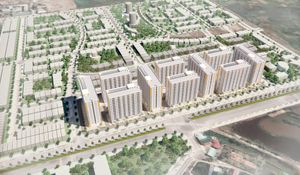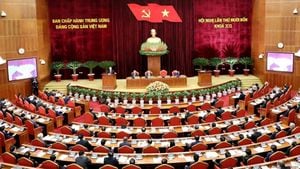A comprehensive investigation reveals disturbing details about the plot against Brazil's democratic framework, initiated in March 2021 by former President Jair Bolsonaro and his allies, according to charges filed by the country’s Prosecutor-General’s Office.
The genesis of this insurrection came shortly after Supreme Court Justice Edson Facchin overturned the convictions of Luiz Inácio Lula da Silva, allowing him to re-enter the political arena. Bolsonaro's supporters, recognizing Lula's status as the leading opponent for the 2022 elections, shifted their focus toward undermining the legitimacy of Brazil’s electoral process. Prosecutor-General Paulo Gonet documented how these operatives sprang to action immediately, advocating for coordinated moves against voting machines, which they viewed as potential tools of defeat.
On July 29, 2021, Bolsonaro's rhetoric intensified during a live address from the Planalto Palace, where he criticized the electronic voting system and openly praised the Armed Forces—a clear signal to mobilize his base against what he insisted were corrupt political machinations. Subsequently, Bolsonaro maintained his barrage of attacks on the electoral system, asserting with fervor his unwillingness to abide by judicial decisions, which he claimed favored his opponents.
Prosecutors highlighted how, during Brazil's Independence Day celebrations on September 7, he declared, “I’ll say this for all of us—we have three alternatives, especially for me: imprisonment, death, or victory.” This claim harkened to the growing tensions surrounding the elections, where Bolsonaro’s narrative created dangerous grounds for potential insurrection should he lose the anticipated election to Lula.
Fast forward to mid-2022, the atmosphere grew increasingly charged. During pivotal meetings, including one on July 5, Bolsonaro urged ministers and high-ranking generals to contemplate the “use of force” should the election not sway in his favor. Prominent among these military figures was General Augusto Heleno, whose remarks suggested preemptive measures were necessary to avert electoral defeat.
Efforts to undermine the electoral integrity culminated on October 31, the day of the second-round presidential election, when federal highway police barred access for voters heading to districts overwhelmingly supporting Lula. Allegations surfaced about these operational orders being orchestrated by Bolsonaro’s government, aiming to suppress the voting power of citizens aligned against him.
Despite Lula's victory announcement, the tumult did not cease. Disinformation campaigns surrounding the illegitimacy of the elections persisted, driven by Bolsonaro's faction. Scenarios were crafted where the instigation of protests would spark military intervention, leading to fears of coup d’état. During the weeks leading to Lula’s inauguration, conspirators plotted to maintain pressure on the military to collaborate in nullifying the election results.
Alongside public agitation, sinister plots emerged, including the “Punhal Verde-Amarelo” (Green-Yellow Dagger) initiative aimed at eliminating high-profile opponents like Lula and members of the judiciary like Alexandre de Moraes. Prosecutors indicated these discussions reached Bolsonaro’s desk for approval, wrapping the narrative of desperation with undertones of lethal intent.
The explosive January 8 demonstrations across Brasília marked the culmination of Bolsonaro’s efforts. Supporters stormed the Congress and Presidential Palace, acts viewed by the Supreme Court as insurrection attempts. The underlying thesis was clear: they aimed to convince military leaders to declare exceptional states and maintain Bolsonaro’s grip on power.
The prosecutors' report indicates the coup effort, hatched during 2021, collapsed primarily due to key military commanders upholding their constitutional duties, rather than joining Bolsonaro's insurrectionist agenda. Critical moments leading to the coup reflect how fragile democracy can be, and how planted seeds of discontent can bloom not just as political rivalry but as existential threats to governance.
Brazil finds itself at another crossroads, with its democratic structures having weathered both political maneuvering and palpable threats. The investigation continues to dissect these machinations, shining light on how close the nation came to reverting to autocratic rule under Bolsonaro’s influence. With this insight, the Brazilian populace is urged to remain vigilant as they navigate the repercussions of recent history, bearing witness to the resilience required to uphold democracy.



